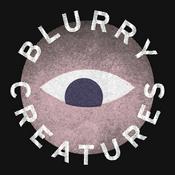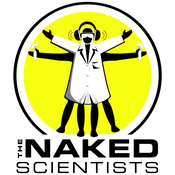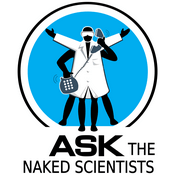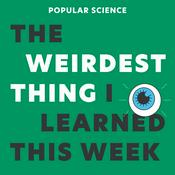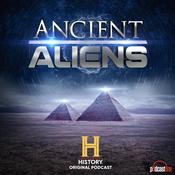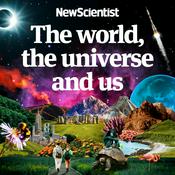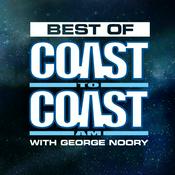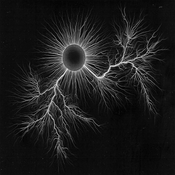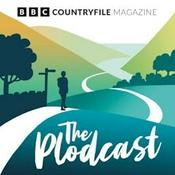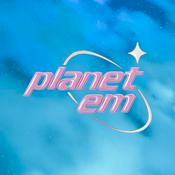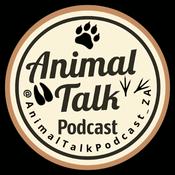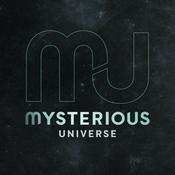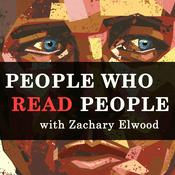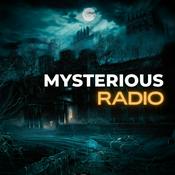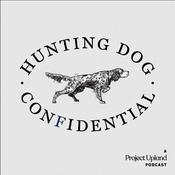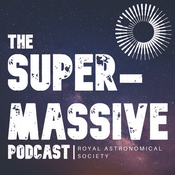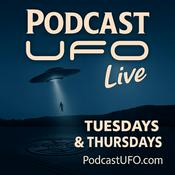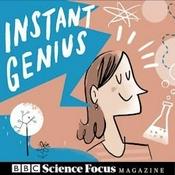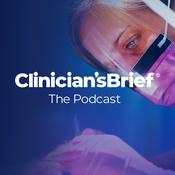228 episodes
- Why do we sweat? And what secrets does it hold about our bodies? On this week’s podcast, Professor Luke O'Neill dives into the fascinating science of sweat. From keeping our body temperature in check to signalling stress and even potential mate selection, sweat is far more than just water and salt.
The podcast explores how sweat is made by specialized eccrine glands, originating from plasma in our blood, and why humans are among the sweatiest animals on the planet. Luke explains how the average adult can produce up to four litres a day, and why staying hydrated is crucial.
But there’s more: stress, exercise, and climate all change how and why we sweat. Sweat itself is odorless, but bacteria, lactic acid, and urea can create the smells we associate with adolescence, gyms, and armpits. And surprisingly, sweat contains proteins that fight bacteria, hinting at a role in our body’s natural defence.
Could sweat one day be a diagnostic tool for disease? Why do identical twins sweat the same amount? And could it even act as a pheromone signal? Professor O’Neill explains all this and more, in a conversation sparked by a listener question from Siún.
If you want to ask Luke your own science question, email him at:
📧 [email protected] - Weather forecasts are famously imperfect, but the science behind them is far cleverer than we usually give it credit for.
In this week's podcast, Professor Luke O’Neill explores how weather forecasting works, and why floods remain one of the hardest things to predict. Luke isn’t a meteorologist — although he did briefly consider it in college — but too much physics put him off. Still, he’s an ideal guide to the basics because the weather is really about a few core ideas behaving badly.
At its heart, forecasting comes down to temperature, air pressure, humidity, sunlight, and the way air flows like a fluid. Air moves from high to low pressure, dragging wind and weather systems with it. Add water vapour into the mix and things get interesting very quickly.
People have been trying to predict the weather for hundreds of years, using almanacs, folklore, and observation. It was never perfect, but it mattered hugely to farmers and sailors. Rain, in particular, remains tricky. Moist air rises, cools and condenses into clouds — but rain doesn’t just appear. It needs tiny particles like dust, sea salt, or pollen to form droplets, and those microscopic details are hard to pin down.
Today’s forecasts rely on satellites, radar, weather balloons, and ground stations, all feeding data into powerful computer models. Those models keep improving, and artificial intelligence is now helping to sharpen predictions.
Flooding is even more complicated. It’s not just about how much rain falls, but how fast it falls, how long it lasts, and where it lands. Soil type, vegetation, evaporation, and urban concrete all matter. Forests and wetlands act like sponges, while cities can make flooding worse — something Ireland knows well after decades of building on flood plains.
Some countries lead the world in flood modelling, but nowhere reliably predicts flash floods. Luke argues that weather is a brilliant way to teach science, and that we already know how to reduce flood risk. The challenge now is acting on that knowledge and getting on with it. - Why does the marathon push the human body to its absolute limits? And why do some people seem built to keep going when everyone else hits the wall? On this week’s podcast, Professor Luke O’Neill takes a biochemical deep dive into marathon running, sparked by a listener’s request. The modern marathon may trace its roots back to Ancient Greece, but what happens inside the body during those 26.2 miles is a very modern scientific story — one that turns runners into walking, sweating demonstrations of bioenergetics.
Luke explains how the body powers long-distance running by converting energy rather than creating it, moving between carbohydrates and fats to keep muscles firing. ATP — the energy currency of life — sits at the heart of the process, with phosphocreatine, glycolysis and oxygen all playing starring roles. When carbohydrate stores finally run dry, runners hit the infamous “wall”, a moment when the body is forced to switch fuel sources, and everything suddenly feels much harder.
The podcast also looks at how training physically reshapes marathon runners over time: denser networks of capillaries in muscles, powerful hearts with remarkably low resting heart rates, and lungs capable of shifting huge volumes of oxygen. Luke explores why elite runners can seemingly run a marathon at will.
There’s science behind the mental side too. Endorphins and the so-called “runners high” can lift mood for days, while visualisation plays a key role in endurance. Luke even dips into the Guinness Book of World Records to uncover astonishing marathon facts, including runners in their 90s and some jaw-dropping physiological extremes.
Along the way, Luke admits he’s never run a marathon himself — but from a biochemist’s point of view, few sports are more revealing of how the human body really works.
You can suggest future topics by emailing Luke at [email protected]. - Turmeric is everywhere – in teas, capsules, curry powders and health ads – but what does it actually do? On this week's podcast, Professor Luke O’Neill explores the science behind the golden root, explaining why it’s been used for centuries in Eastern medicine and what modern research tells us about its effects.
We dive into curcumin, turmeric’s active ingredient, and learn how it fights inflammation, works as an antioxidant, and even interacts with our gut bacteria to become more potent. Luke separates the science from the hype, highlights the evidence for conditions like ulcerative colitis, and explains why taking turmeric might help – as long as it’s not replacing your prescribed medication.
Along the way, we uncover fascinating trivia: the plant’s own sunscreen, why it stains everything yellow, and how it became a sacred dye for Buddhist and Hindu robes. Whether you love it in your curry or in your supplement cabinet, this episode shows why turmeric has earned its golden reputation. - This week on the podcast, Professor Luke O’Neill turns his attention to a condition that’s often misunderstood and far more common than many people realise: Lewy Body Dementia.
Requested by listener Eben Stewart ahead of World Lewy Body Dementia Day on January 28th, the episode looks at what causes LBD, how it differs from Alzheimer’s and Parkinson’s, and why so many people are living with it without a diagnosis. Around 10,000 people in Ireland are believed to have Lewy Body Dementia, yet only a fraction are formally on the register — a gap that has real consequences for care, treatment, and awareness.
Luke explains how abnormal protein clumps, known as Lewy bodies, build up in nerve cells and trigger inflammation and neurodegeneration. LBD affects both cortical and sub-cortical regions of the brain. That helps explain why early symptoms are often cognitive rather than physical — confusion, memory problems, difficulty with decision-making, and, in many cases, vivid visual hallucinations and delusions.
As the condition progresses, Parkinson’s-like symptoms such as tremor and rigidity usually emerge too. Treatment is complex and requires care, with some anti-psychotic medications risking a worsening of symptoms, while drugs like L-Dopa can help manage movement issues. Luke also talks about ongoing research, including work happening in his own lab on potential new treatments now in clinical trials.
The episode also touches on why Lewy Body Dementia is more common in men, why it typically appears after the age of 50, and the role family history can play. And it reflects on the stories of well-known figures who lived with Parkinson’s and LBD, including Robin Williams, Glen Campbell and Michael J Fox, whose experiences helped shine a light on just how challenging — and misunderstood — LBD can be.
Trinity College Dublin will host a Lewy Body Dementia awareness event on January 28th in Unit 18 on the Pearse Street campus from 12pm, as part of efforts to improve understanding and recognition of the condition.
More Science podcasts
Trending Science podcasts
About Show Me the Science with Luke O'Neill
Have you ever wondered why we laugh or if you can really die of a broken heart? Join Professor Luke O'Neill on ‘Show Me the Science’ as he tackles a different issue each week; from the serious to the silly, all explained through science. This Newstalk production will open the world of science to people of all ages. New episodes every Thursday. Show me the Science is with thanks to B Braun.CONVERSATION THAT COUNTS | Ireland’s national independent talk station for news, sport, analysis and entertainmentListen to Newstalk at http://newstalk.com/listenlive | Download the GoLoud app now, the new home for Newstalk
Podcast websiteListen to Show Me the Science with Luke O'Neill, Hidden Brain and many other podcasts from around the world with the radio.net app
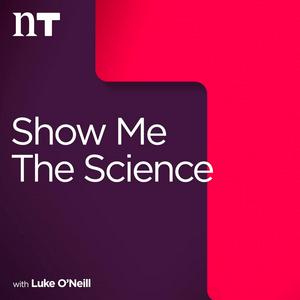
Get the free radio.net app
- Stations and podcasts to bookmark
- Stream via Wi-Fi or Bluetooth
- Supports Carplay & Android Auto
- Many other app features
Get the free radio.net app
- Stations and podcasts to bookmark
- Stream via Wi-Fi or Bluetooth
- Supports Carplay & Android Auto
- Many other app features


Show Me the Science with Luke O'Neill
Scan code,
download the app,
start listening.
download the app,
start listening.




